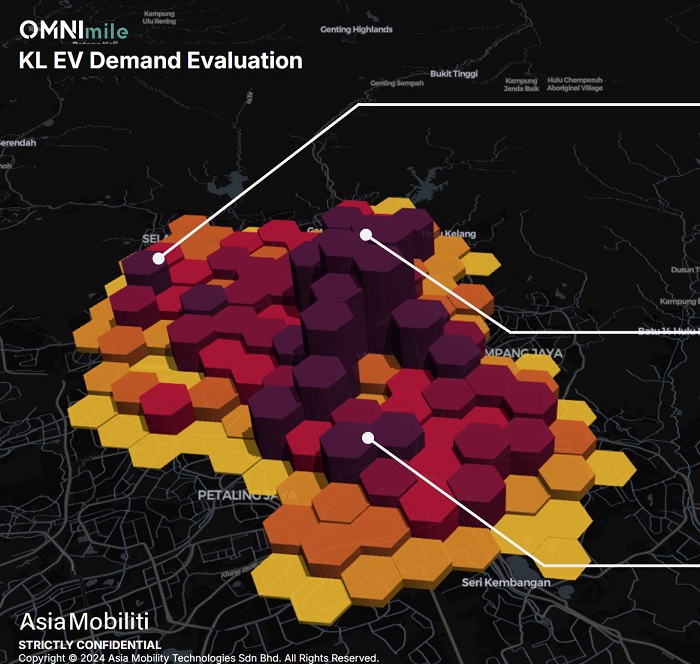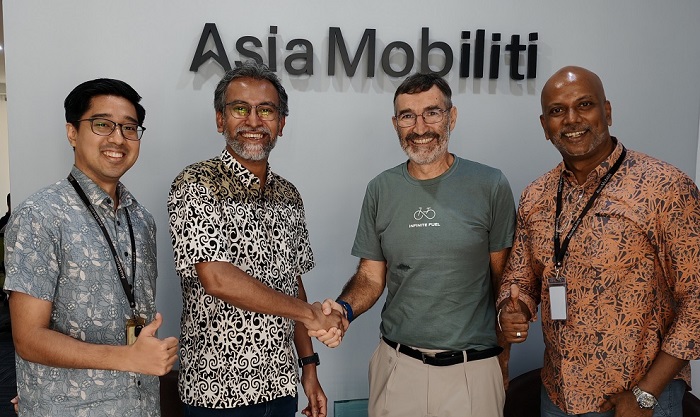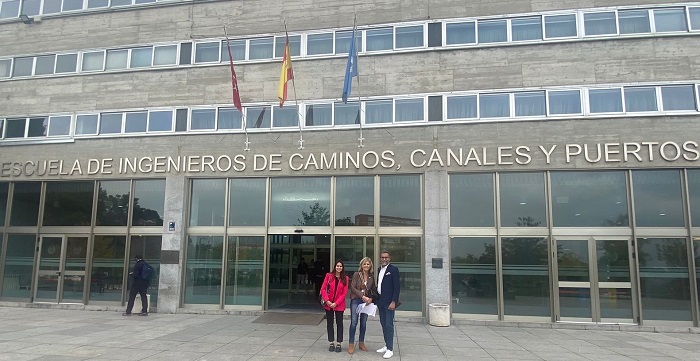Asia Mobiliti and Polytechnic University of Madrid produce research on EV charging infra optimisation
By Digital News Asia November 20, 2024
- Data approach to advance sustainable, multimodal mobility in urban centres
- Paves way for investment in EV infra that will benefit public, private stakeholders

Asia Mobiliti, Malaysia’s leading Mobility-as-a-Service (MaaS) technology and digital city solutions provider with the Blue Diplomacy and Circular Economy Research Line of the School of Civil Engineering at the Polytechnic University of Madrid (Universidad Politécnica de Madrid ‘UPM’) have completed a research collaboration aimed at optimising electric vehicle (EV) charging infrastructure to support sustainable, multimodal urban mobility.
The findings are scheduled to be released soon.
The project focused on developing a data-driven analytics framework that could guide the strategic placement of EV chargers, using Kuala Lumpur as the initial test city.
The framework incorporates predictive power demand models built upon the mobility patterns of Kuala Lumpur, mapped against key points of interest and the city’s public transport network.
The analysis was used to determine optimal locations, types, and quantities of EV chargers needed, offering a blueprint for cities seeking to enhance their electric mobility networks. This approach provides actionable insights for city planners and Charging Point Operators (CPOs) as they expand EV infrastructure, aligning with sustainable urban growth initiatives.
Ramachandran Muniandy, CEO and co-founder of Asia Mobiliti, said, "Our collaboration with UPM marks a significant advancement in data-driven urban planning. By leveraging detailed mobility data, we’ve created a framework that not only identifies high-demand areas for EV charging but also integrates seamlessly with public transport networks, promoting a more connected and sustainable multimodal transit ecosystem.”
Asia Mobiliti claims that the success of the collaboration has laid the foundation for a new global data service from it, offering valuable insights to cities that are prioritising electrification as part of their sustainability agenda. This new service aims to support urban centres in addressing the challenges of EV infrastructure placement and demand prediction, providing a scalable solution adaptable to cities of varying sizes and transit needs.

Prof. Pedro Fernández Carrasco, research supervisor and senior lecturer leading the research line in Blue Diplomacy and Circular Economy, highlighted the unique opportunity this collaboration provides for academic institutions like UPM to apply theoretical knowledge to real-world scenarios.
“Working with Asia Mobiliti allows young talent to develop their skills within a highly qualified team at the forefront of technological innovation, bridging the gap between academia and industry. The significance of UPM's partnership with the ASEAN region, particularly with Malaysia, is a key step in fostering international research connections that drive sustainable development and contribute to the advancement of smart urban solutions,” he said.
The research was supported by Asia Mobiliti and UPM's in-house expertise and proprietary technologies. Investment in such postgraduate-level research typically represents a substantial commitment of resources, underscoring both organisations' dedication to advancing innovative solutions for urban mobility.
By providing an optimised approach to charger deployment, Asia Mobiliti and UPM’s research collaboration paves the way for a new era of investment in EV infrastructure that will benefit both public and private stakeholders.

Related Stories :


